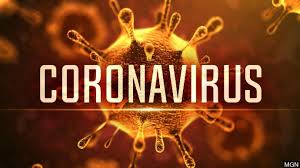


Posted January 30, 2020
This is a question I hear from lots of people and the answer is purely about how different media formats work. Let me explain.
 If you talk to a print reporter, only parts of what you say will ever make it into the subsequent news story. That’s because news stories are relatively short. What this means is that the reporter will only use the most exciting parts of what you say. Lots of people who don’t understand the media interview process find this out the hard way. There is always an assumption that the subsequent news story will be an exact summary of the interview, but that’s never the case.
If you talk to a print reporter, only parts of what you say will ever make it into the subsequent news story. That’s because news stories are relatively short. What this means is that the reporter will only use the most exciting parts of what you say. Lots of people who don’t understand the media interview process find this out the hard way. There is always an assumption that the subsequent news story will be an exact summary of the interview, but that’s never the case.
That’s why you need to be very careful about what you say because anything can be used completely out of the context in which it was said. I’m sure that’s happened here when authority figures have been interviewed about the virus.
For example, an expert may have said, “I expect there to be many more deaths, but on a global scale it would be so minor that I don’t even know why we are talking about it.” Guess what, the headline could read “Expert expects many more deaths,” and the reporter may not even mention the entire quote.
The same goes for television and radio news bulletins. With these, the reporter is only looking for a seven second sound bite so is likely to use something exciting, rather than the whole story. Remember they are trying to attract audiences, and death sells.
However, live interviews are a different story. They are not cut by editors so you hear the whole story. I saw a very balanced interview with Dr lance O’Sullivan a few days ago. He wasn’t overly concerned about the coronavirus.
So if you are worried, focus on the live television and radio interviews. They will give you the most accurate picture.